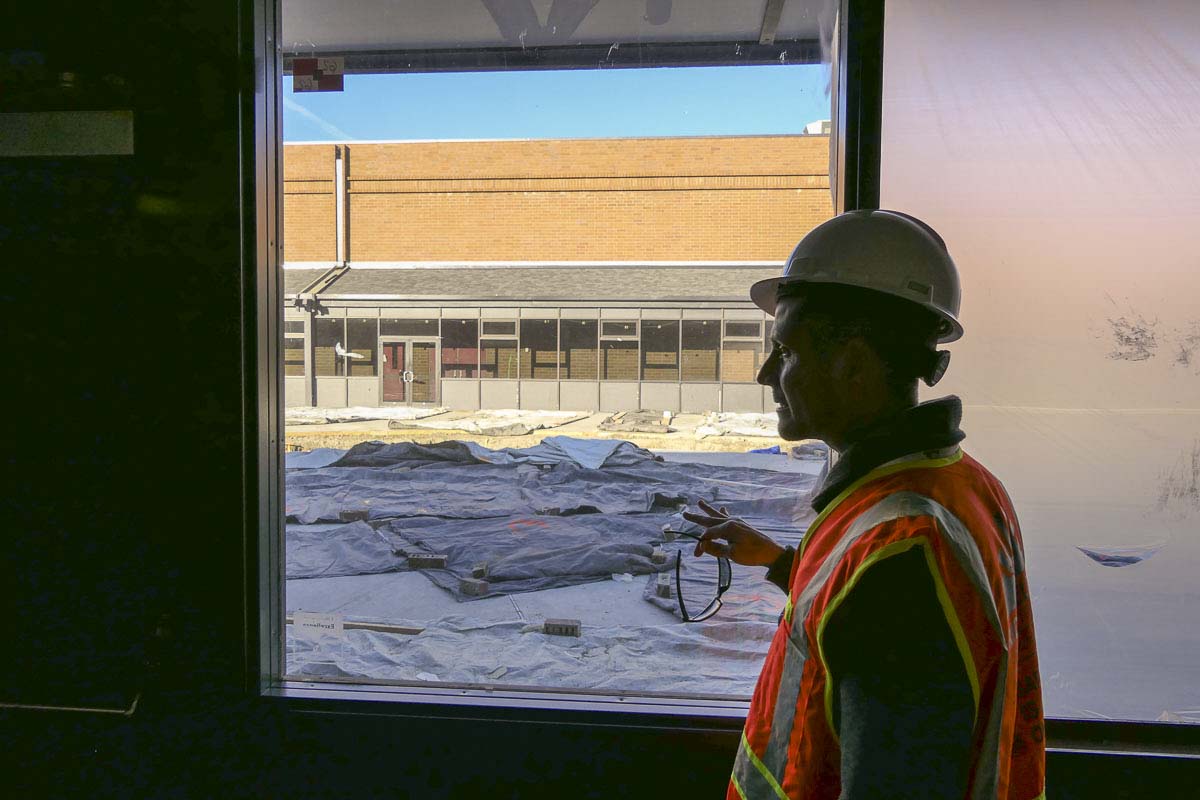Support fell ten percent from the previous building bond passed in 2017
RIDGEFIELD — The last time Ridgefield School District went to voters to ask for $78 million to help build a new school and expand others, 69 percent of voters were on board.
When the district went back to voters this past Tuesday to ask for another $77 million for a new bond to build an elementary school, add security, and upgrade vocational programs at the high school, amongst other things, support had dropped by ten percent.

In the state of Washington, a school bond needs to meet two criteria. Ridgefield only met one this time around.
While the had the necessary turnout (40 percent of the most recent general election), they failed to get at least 60 percent support. Barely.
“Naturally I’m disappointed,” said Ridgefield Schools Superintendent Nathan McCann, before adding, “I believe everyone who voted in this election, whether the voted for the bond or against it, they’re school supporters. I think it’s evident that Ridgefield really loves its schools.”
What they’re not so sure about, McCann believes, is the rapid pace of growth in Ridgefield.
“People are seeing the community change, and they’re worried about if that change will be for the better or not.”
Homeowners also got hit by a double-whammy of property taxes in 2018, with statewide taxes increasing to pay for basic education, and a local levy cap not taking effect until this year. McCann says they saw a lot of senior citizens show up to vote on Tuesday, many of whom are on fixed incomes and hit especially hard by the tax increases.
“It was a very big change, and people haven’t had the opportunity to feel the reduction in 2019 yet,” says McCann, “and so I think that was a factor as well.”
Legislators approved a one-time property tax decrease of $0.30 per $1,000 of assessed value this year, as local levies become capped at no more than $1.50 per $1,000. But the building bond would have added an additional $1.06 per $1,000, and it seems a number of voters didn’t want to give up some relief in the property tax bill.
McCann says he gets that, and he understands the apprehension some people feel about the pace of growth in Ridgefield. But, he adds, his district faces a harsh reality.
“The need hasn’t gone away,” he says. “We’re projecting 1,400-plus students coming in the next four years, and that’s going to happen. We’ll have to be back out there with another bond program.”
As for when that might happen, McCann says it’s too early to say. “We’re not talking years. We don’t have years,” he says.
Similar population growth forecasts in Vancouver and Battle Ground school districts haven’t paid off, with enrollment in those districts actually declining this year, and forecast to decline again next year. McCann says it’s possible that trend has some in Ridgefield doubtful that the 1,400-new-students-in-4-years prediction will come true.
“Ridgefield has a lot of land targeted for reasonably high density housing,” he says, noting that Vancouver is seeing more infill development at higher costs, “and (Ridgefield) is a district that’s going to grow for years.”
Even with their current student population, McCann says the need is already there for a new elementary school.
“I’m not sure there’s a bigger student enrollment population district in the state that’s only five schools than Ridgefield,” he says, with the caveat that that’s just an anecdotal observation.
Action in Olympia?
The repeated failure of Battle Ground to get a bond approved to build new schools, and now Ridgefield’s whisker thin miss, could fuel conversation in Olympia about the 60 percent majority needed to pass one. Already lawmakers, including 49th District democrat Monica Stonier, and 17th District republican Paul Harris, have said they might consider going to a simple majority vote on bond measures.
McCann says he’s interested in the discussion, but shys away from the thought of just a simple majority.
“A school bond can be paid off in 20 or more years,” he says. “That’s a big deal, and it needs a lot of considered attention before people make up their minds.”
McCann says he might be in favor of a compromise. Perhaps rolling the requirement back to 55 percent, while maintaining the validation requirement.
While dealing with a rejection at the ballot box for the first time in his tenure as superintendent isn’t something McCann is enjoying, he says he’s still optimistic for the future of the district, and bullish on the people who inhabit it.
“We had over 6,000 people vote in this election,” he says. “I think that’s also a tribute to our engagement and, even when that means someone is voting no, I think that they’re getting informed on the measure, they know there’s an election. Ridgefield doesn’t try to squeak an election through with, you know, the minimal amount of people trying to vote. I’m just… I’m proud that people pay attention.”




